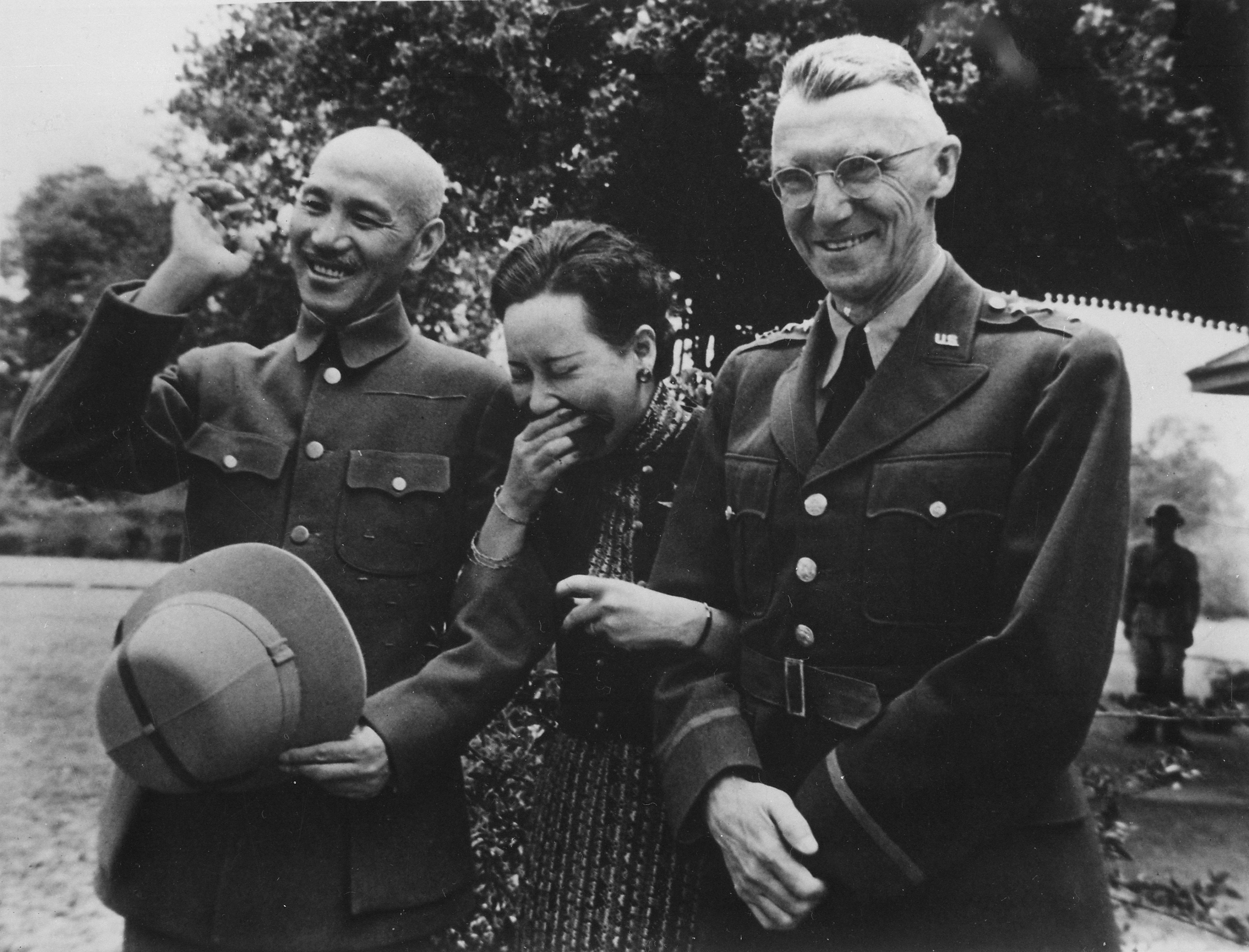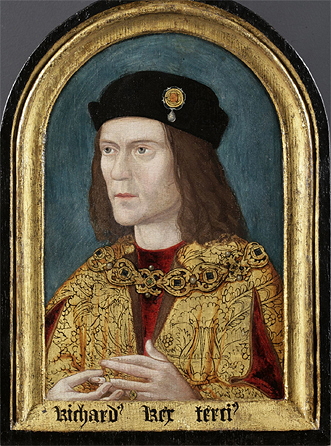I've been re-reading Hilary Mantel's "Wolf Hall" and "Bring Up the Bodies" because I want to, because I love her writing style, and because I'm really looking forward to the third volume. But it's made me think about reputation and how it changes over time.
There was a time when Teddy Roosevelt was that madman only one heartbeat away from the presidency - now he's Theodore Rex. In his own time, Harry Truman was considered an average numbskull - if not downright impeachable, especially for his opposition to General Macarthur and Big Mac's idea of bombing China - but after Watergate, Merle Miller's transcripts of Harry's "Plain Speaking" became a best-seller, and his salty speech and down home ways proved his integrity in a corrupt world. Every American reader of "Life" Magazine from the 1920s through the early 40s knew that General Chiang Kai-Shek was democracy's one great hope in China; but after WWII, with China gone Communist, his brutal takeover in Taiwan, and his constant demands for money (and nukes), he became widely known as "General Cash-My-Check."
 |
Chiang Kai-Shek, his wife, Mei-ling Soong, and General Stillwell, who called CKS "Peanut" -
and not affectionately. |
 |
| Thomas Cromwell |
 |
| Thomas More |
And there have been the various cases of rehabilitating the infamous. Richard III - was he the evil, murderous, usurping crookback of Thomas More's little black pamphlet (although there's no proof that the sainted More wrote it) or the misunderstood, suffering, good king of Josephine Tey's "The Daughter of Time"? For that matter, was the martyred saint Thomas More the gentle, mild-mannered public servant of unshakeable integrity and equally unshakeable convictions of Robert Bolt's "A Man for All Seasons", or was he the hard-core persecutor of Protestants, advocating deceit, torture, execution and extermination for all "heretics" that both Foxe's "Book of Martyrs" and Hilary Mantel's "Wolf Hall" present? And that, of course, leads to Thomas Cromwell, generally presented - until Mantel's work - as a villain: unscrupulous, ambitious, jealous, greedy, predatory and ruthless. Or was this the perfect way to make him the perfect foil for St. Thomas More?
Much of reputation depends on timing. Histories aren't written in a vacuum, nor are plays, novels, movies, television shows. There are reasons behind what is written. Sometimes we know what they are; sometimes we don't. Sometimes we're too close to know, and it will take later people to figure it out.
For example, there's an ancient historian named Plutarch, who wrote biographies and histories back around 100 CE: "The Lives of the Noble Romans and the Noble Greeks", and "On Sparta." They are major sources for historians about the ancient world - especially Sparta, which wasn't known for writing down much of anything. There are only two problems with Plutarch's work: his biographies were written to show the influence of character on lives and destinies - and he didn't believe people could change. And "On Sparta" reeks of nostalgia for a society in which everyone was equal, honest, brave, above sordid things like money and greed and luxury. And the question is, why did Plutarch - writing 500 years after Sparta was dead and gone - write so admiringly of a society that was totally dedicated to war AND based on one of the most horrifyingly brutal slave-owning regimes in a world that has known some pretty bad ones? Good question. Well, one answer might be that he was writing during the reign of the Emperor Trajan, which saw the greatest military expansion of the Roman Empire:
 |
| The Roman Empire under Trajan - most of the known world of the day |
An ideal time to promote military societies, wouldn't you say? And slavery (Rome was 50% slaves under Trajan; at its height, Sparta was 90% slaves). But, since all that military conquest was flooding Rome with goods and citizens were wallowing in excess luxury, let's go back to the good old days, when men were men and fought simply for the honor of it, and the greater good of their
polis.
 |
Earliest known
portrait of Richard III |
 |
| Henry VII |
Going back to that early pamphlet on Richard III - rumored to be Thomas More's - it was written specifically to blacken Richard III irredeemably, and to make everyone absolutely ecstatic that Henry VII and the Tudors had come in. It was a political document, and needed, because Henry Tudor had no legitimate claim to the throne. He was the grandson of a Welsh bowman, Owen Tudor, who (perhaps) married the French widow of Henry V, Catherine of Valois. No royal blood there, at least, not English royal blood. His mother, Margaret Beaufort was the descendant of the House of Beaufort, who were all the descendants of John of Gaunt (son of Edward III) by his mistress Katherine Swynford (the steamy details were the scandal of Europe for 25 years, until he - amazingly - finally married her). In other words, he had damned little English blood in him, and most of it was illegitimate. There were still legitimate Plantagenets and Yorks around who had much better claims to the throne. So when Henry VII finally won the throne of England at the Battle of Bosworth Field, he immediately married his 3rd cousin, Elizabeth of York, got her pregnant as quickly as possible, and declared himself king as of the day BEFORE the battle, making everyone who fought him traitors, and eminently executable. And he had his court historians - Polydore Vergil, Thomas More, and John Rous - write histories of England that made Richard III, killed at the Battle of Bosworth Field, to be the most evil, implacable king who ever lived. Maybe he was. But then again, maybe he wasn't.
 |
| Yeah, like this is serious history |
And so back we go to the Tudor era, which keeps getting rewritten. For many years, Elizabeth I was all the rage - or Mary Queen of Scots (who I consider one of the stupidest women in history). And most of the popular stuff - HBO's "The Tudors", and many novels - are all centered around Henry VIII and his enormous appetite for women, which gives everyone a chance to show what they can do with codpieces, tight bodices and hoisted skirts. But the serious stuff today is all on the men of Henry VIII's reign - parsing and reparsing Thomas More, Thomas Cromwell, Cardinal Wolsey. I am not sure why. Is it that Cromwell was a blacksmith's son made prime minister, the American Dream writ large on an English stage, minus the execution at the end? Is it that we all want to be Thomas More, integrity and sagacity combined? Or that we're tired of saints, and want to hear about the common man? Or we're sick of religious zealots, and want to hear how to stop them?
NOTE: My next blog is New Year's Day, and I will be doing a review of our own Janice Law's new novel, "The Prisoner of the Riviera". I started it last night and I can tell you this much: - it's really, really good…







Eve, I've said it before, and I'm saying it again: you make history more interesting than any teacher I ever had!
ReplyDeleteI'm looking forward to the review of
THE PRISONER OF THE RIVIERA.
This post is right up my alley, Eve. I loved Wolf Hall and how plausibly Mantel made Cromwell the hero. I hadn't known he rose from the ranks of common men, and not through the Church, which must have been a unique achievement at that time. By the end of Bring Up the Bodies, I was getting a little tired of her style, but I'll probably read the third one to see how she gets to the inevitable end.
ReplyDeleteA good piece. I enjoyed a Man for All Seasons and Wolf Hall, both, which goes to show the power of the pen!
ReplyDeleteEve, history is written by the winners, and as you say, often from a political bent. It's amazing, and sometimes fun to then read the newly rewritten history for that same era or event based on someone's new findings. And then that finding becomes subject to review and more rewriting. Truth often gets lost or mangled.
ReplyDeleteAnother good history post.
As an example of different historians, different reputations, years ago I read three biographies of Stalin as part of my Cold War studies: one by an American historian, one by a European historian and the one by Trotsky (the one in which was stopped in mid-sentence by the ice-axe wielded by Stalin's assassin).
ReplyDeleteEve, this is really good stuff. (I personally like WOLF HALL a lot.) More to the point, reputations rise and fall. Mary Renault talks about the "blackwashing" of Alexander the Great after his death. Same goes for Richard of Gloucester, and for many of us, A MAN FOR ALL SEASONS defines Thomas More. Is his saintly repute deserved, or was he as reptilian, and as much of s political opportunist as Cromwell and the rest? Hard to say. "We hang on prince's favors," Wolsey remarks in HENRY VIII, and it's as true now as it was then.
ReplyDeleteI just sent a friend a Plutarch quote about government.
ReplyDeleteEve, what Fran said: I enjoy your histories. It's an ongoing learning process.
Beautiful post, Eve. I really enjoyed it. (And, I'll bet comparing those three Stalin biographies was a trip!)
ReplyDeleteIn St. Thomas More's defense, he was singular amongst most of his contemporaries in that he chose his faith and the Church over a king. This in spite of repeated enticements and opportunities to do otherwise and be restored to his previous lofty position. He paid with his head as he knew he would. Hardly the behavior of an opportunist. On another note, he was also alone in seeing that his daughters received as classical an education as men of their class did.
ReplyDeleteAs for poor Trotsky...one of the few times that we can be reasonably sure of what someone was thinking at the moment of their death.
Eve, there's a new book out on Soviet history which I think is titled, "The Vanishing (or disappearing) Commissars." It deals with the Stalinist pictorial purges that followed the actual ones. Using photographs the author shows how Stalin begins his reign surrounded by commissars who vanish from the frame one by one until only he is left. What's truly remarkable and terrifying is the degree to which this was accomplished in govt. buildings and schools across the U.S.S.R. time and time again--historical figures that simply ceased to exist in either the written word or photo.
Great blog, Eve!